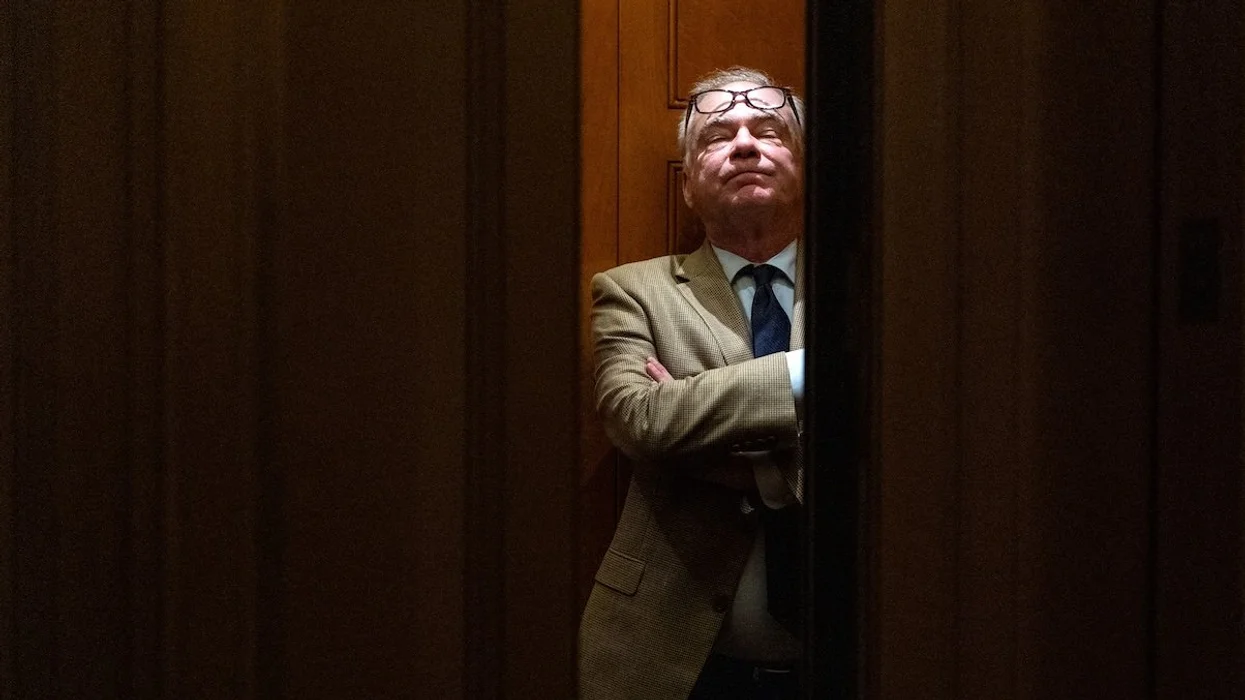
© 2025 Blaze Media LLC. All rights reserved.
Last week, Rep. Paul Ryan visited the Jack Kemp Foundation and gave an amazing speech. It was a speech that appeared aimed at Mitt Romney’s 47 percent remark, which many commentators felt alienated the party from the poor in America. It was a speech about his concern for the “40 percent of all children born into the lowest quintile” who “never rise above it.” It is heartening to hear a Republican say such things. For far too long conservative Republicans have avoided this issue, letting liberals beat them insensate on it. They will always win on emotions to help the poor (versus not helping), yet their poverty programs don’t help the poor; they are always traps. A true free market approach, on the other hand, will bring enormous prosperity to those at the bottom of the ladder, as the 20th century showed. Regrettably, the Republican Party hasn’t always taken a true free market approach.
Can it be done? Can Republicans articulate a strong free market message that simultaneously looks out for the poor? Absolutely. Heres five suggestions:
1 – End the Fed and establish hard money
What people are concerned about is putting food in their bellies, clothes on their back, and a roof over their heads--as well as covering their medical bills and perhaps getting a better education. Problem is, the dollars in their wallets aren’t going as far as they used to, and they shrink every day. Much of this is due to inflationary monetary policy at the Fed, especially via its quantitative easing programs. But the value of the dollar has plummeted since the Fed was created in 1913, losing about 95 percent, all because of government bureaucrats and number crunchers trying to determine what the dollar “should” be. This means the poor, even if they have the same number of dollars, can’t buy the same number of things. Restoring a sound, hard currency--whether based on gold, a basket of commodities, or another foundation we can all agree on--will not just drastically shrink government, it will regenerate the poor’s purchasing power.
2 – End all subsidies, loans, bailouts, barriers to entry, and all cronyism
We all agree that government shouldn’t be picking winners and losers via corporate subsidies and bailouts, but we should also recognize how these programs hurt the poor. Natural competition makes goods and services cheaper, but these programs shortchange that. Take, for example, the federal Dairy Price Support Program. It has the federal government buy the ingredients for cheese and milk, thus raising the price of these goods. A 2004 Government Accountability Office report showed that “U.S. prices for butter averaged twice the world price, cheese prices were about 50 percent higher, and nonfat dry milk prices were about 30 percent higher.” What does this do for the poor, other than make them more dependent on government welfare?
The same thing can be said for any artificial barrier to entry. Barriers to entry are those things that prevent, or make it more difficult, for a new company to enter a market or industry and compete with the established players. There are many natural barriers to competition; the price of advertising, or customer loyalty, or simply the costs of resources. But shrewd entrepreneurs find ways around these barriers, and still deliver what consumers want. Unfortunately, there are many artificial barriers that shouldn’t be there: namely, regulation pushed by big corporations that want to keep out new competitors and thus maintain their lock on the market. Quality assurance requirements, business permits--heck, even laws preventing liquor stores from staying open on Sunday. Regulations, subsidies, bailouts, and all forms of cronyism have built up like gunk in the plumbing, and we need a plumber. The best way to do that is to establish a commission to comb through the Code of Federal Regulations, find all the ones that should be eliminated, and present them as a package to Congress for an up-or-down vote. Congress deregulates, government shrinks, spending is reduced, competition increases, prices decrease, and everyone--especially the poor--is better off.
3 - Sever health insurance from employment and reintroduce a proper price system
Healthcare is one of the biggest spending areas in the nation, particularly for those lower on the income scale. The whole reason we had Obamacare shoved down our throats was so that the poor could finally afford insurance--though they’re really just been given a handout. The problem, though, is that today we have a highly distorted, cronyist market. Huge tax breaks have been carved out for employer-based health insurance, making it unnecessarily expensive to buy it on your own in the individual market. At the same time, there is no proper price system in place; as John C. Goodman of the National Center for Policy Analysis noted many moons ago, the reason healthcare costs are so high is because consumers don’t bother shopping around, like they would for cars or appliances. What conservatives and libertarians can do to reduce healthcare prices is create a genuine price system, by removing the tax distortions favoring employer-based healthcare, allowing walk-in clinics and other innovate healthcare delivery systems to thrive, and letting insurance cross state lines. That would do more good for the poor than Obamacare ever will.
4 - Focus on Income Mobility as the left has focused on Income Equality
This is less a public policy than it is a communications strategy. We have heard endlessly from the left on how income inequality is just terrible, and how horrible it is that there are some people making millions a year while there are others who struggle to make more than a few thousand. While we all know it’s intellectual garbage, emotionally, it resonates perfectly with those who are either poor or concerned about the poor. The good news, though, is that we have an even better line that doesn’t come with any class warfare baggage: income mobility. Instead of focusing on different people having more or less wealth, let’s focus on paving a path for those at the bottom of the income ladder to climb to the top. Professor Robert Lawson of the Cox School of Business explains it better than I ever could in this four minute video from the Economic Freedom Project:
5 – Replace/reform entitlements and welfare with a Negative Income Tax
Up until now, all the suggestions I’ve given have not been based on handouts or giving money to anyone. Instead, by cutting government spending and reducing government’s control over the economy, we naturally make things easier for the poor. But even with all these changes, which would go far in alleviating poverty, we must admit that at the end of the day we’re going to need some sort of social safety net to catch those who have truly fallen on hard times. There are many solutions and possible alternatives, but in the interest of brevity, I’m going to put forward one idea: Milton Friedman’s Negative Income Tax. In a nutshell, everyone would just file tax returns. Those falling below a predetermined threshold would receive payments (or, in other words, a “negative tax”), those at the threshold would have no net change, and those above the threshold would pay a “positive” tax.
Friedman combined this idea with a flat tax, and hoped it would replace all welfare. It does have many benefits, namely by removing much of the government bureaucracy in place to handle welfare claims today. It would effectively provide a minimum income, thus doing away with the need for minimum wage laws, thereby boosting employment. The NIT would go a long way towards both helping the poor and reducing government, and that’s a conservative policy anyone should love.
Paul Ryan is exactly right to worry about the poor. They’ve been mistreated and abused by leftists for decades. It’s time for us on the right to fix this. Let’s shrink government and uplift the poor at the same time. It’s a win-win.
Want to leave a tip?
We answer to you. Help keep our content free of advertisers and big tech censorship by leaving a tip today.
Want to join the conversation?
Already a subscriber?
more stories
Sign up for the Blaze newsletter
By signing up, you agree to our Privacy Policy and Terms of Use, and agree to receive content that may sometimes include advertisements. You may opt out at any time.
Related Content
© 2025 Blaze Media LLC. All rights reserved.
Get the stories that matter most delivered directly to your inbox.
By signing up, you agree to our Privacy Policy and Terms of Use, and agree to receive content that may sometimes include advertisements. You may opt out at any time.





